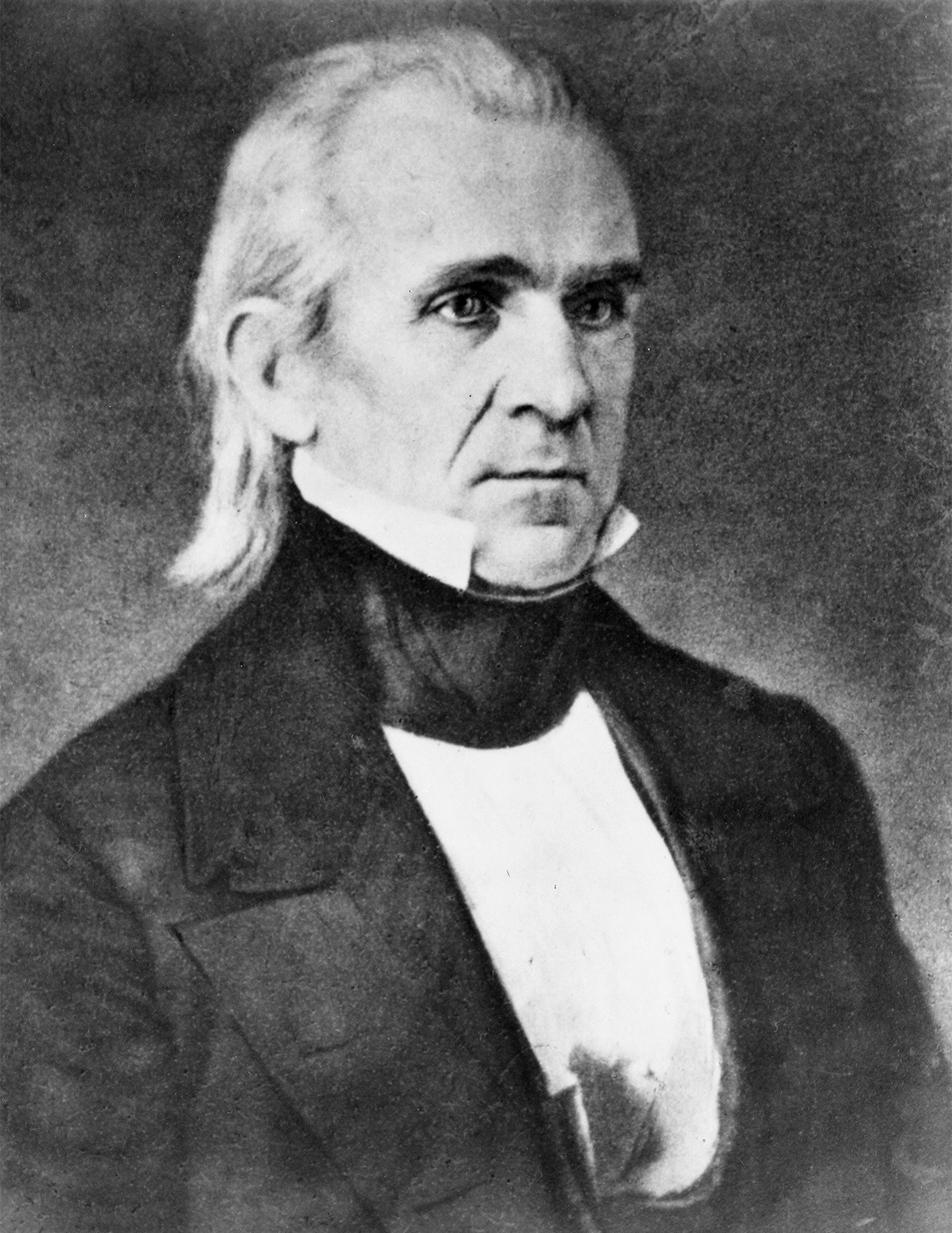On November 2, 1795, James Polk was born in Pineville, Mecklenburg County, North Carolina, to a farmer family. He was the first of ten children of Jane and Samuel Polk and named after his maternal grandfather, James Knox.
James Polk suffered frail health as a child. In one account, his father took him to a physician in Philadelphia, Dr. Philip Syng Physick, for his urinary stones. Dr. Ephraim Mcdowell from Danville, Kentucky, conducted the surgery to him. They used brandy as anesthesia since there are no anesthetics during that time. The operation was successful; however, it possibly resulted in James’ impotence or sterile in the future.
James Polk was diligent and industrious. He entered the Presbyterian Academy in 1813 and became a member of the Zion Church. Then, he transferred to Bradley Academy in Murfreesboro, Tennessee. In 1816, he was admitted into the University of North Carolina and graduated with honors in 1818.
He returned to Tennessee and studied law under Attorney Felix Grundy. Elected as clerk of Tennessee State Senate on September 20, 1819, James Polk soon got admitted to the Tennessee bar in June 1820.
His first case as a lawyer was to defend his father against a public fighting charge.
James Polk was an ambitious young lawyer. He opened his own office in Maury County. The cases he held were mostly related to matters arising from the Panic of 1819. With success as a lawyer, this endowed his political career.
He aspired to run as a candidate for the Tennessee House of Representatives in the 1824 election. In preparation for it, he started campaigning as early as August 1823.
His father, Samuel Polk, was a slaveholder and inherited more than 8,000 acres of land and divided the 53 slaves to his widow and children. He died in 1827, and James inherited 20 slaves from his father together with a large sum of land.
As a member of the masonry, James Polk was commissioned in the Tennessee militia as a captain then promoted to Colonel as one of the staff of Governor William Carroll.
Sarah Childress, his wife, was a daughter of a prominent planter and merchant. Her parents were Elizabeth Whitsitt and Joel Childress.
She received the best education of her time. Sarah attended the exclusive Moravian’s Salem Academy in Winston-Salem, North Carolina, in 1817, which was one of the few higher education institutions for women.
According to some accounts, Andrew Jackson described her as wealthy, pretty, ambitious, and intelligent. Andrew Jackson was a close family friend of the Polks and Childress.
Sarah Childress was engaged to James Polk in 1823 and married on January 1, 1824, at her family’s plantation home in Murfreesboro. Sarah was 20 years old while James was 28 years old at the time of their marriage.
James and Sarah never had children of their own nor adopted for 25 years of marriage. They raised their nephew, Marshall Tate Polk, and sent him to Washington D.C., later to Georgetown University.
Sarah’s grace, intelligence, and charm compensated her husband’s serious manner.
James Polk was a great Jackson supporter. Serving in Tennessee legislature, James Polk was a chief lieutenant of Andrew Jackson’s Bank War. He believed that Henry Clay, who was the Speaker of the House, traded his support to John Quincy Adams in exchange to become the new Secretary of State in a corrupt bargain.
He served as Speaker of the House from 1835 to 1839, then left the Congress to serve as the Governor of Tennessee.
James Polk began to stand out because of his statuses about the annexation of Texas and asserting the re-occupation of Oregon. He became the leading contender for the Vice Presidential ticket of the Democrats.
Andrew Jackson sensed that the citizens were in favor of expansion. James Polk was nominated in the ninth ballot because of his commitment to the Nation’s “Manifest Destiny,” which expands freely across the continent and extends democracy. The Democrats made him the man who stood for expansion because of his political will regarding it. He was even in favor of acquiring California.
James Polk was the youngest president in American history. He was only 49 years old when he took office on March 4, 1845. The expenses James Polk had in his four previous campaigns, three times as a governor and one for the presidency, cost him too much. Trying to save up his presidential salary to cover the wages of White House servants, he replaced them with slaves from their plantation.
As he succeeded John Tyler in the office, Texas’ annexation was already signed and became a new state. In December 1845, he signed a resolution regarding Texas’ annexation; however, the tension between Mexico and the United States started to escalate due to severed diplomatic relations after acquiring Florida.
It led the country to a controversial war since James Polk insisted that Mexico invaded the United States before an earlier clash between American and Mexican troops. A representative from Illinois named Abraham Lincoln was vocal about his protest regarding the president’s justification of the war. Abraham Lincoln described it as unconstitutional and unnecessary.
James Polk lost the public support because of the bloody conflict and made the United States loss over 13, 780 men and spent more than $100 million for the war.
Towards the end of 1848, Abraham Lincoln began coaching Zachary Taylor, the Republican presidential candidate who succeeded him.
James Polk’s administration acquired 525,000 square miles of new territory. It led to intense debate in Congress whether the new states assimilated slavery.
His service as a president took a toll on his health. Three months after he left the office, he died on June 15, 1849, due to intestinal disorder. Doctors believed that overwork worsens his condition.
US Presidents | ||
